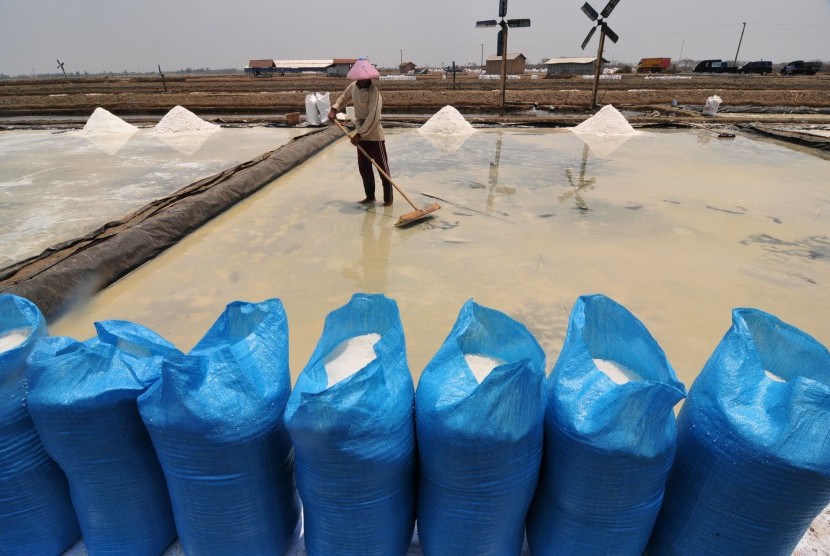REPUBLIKA.CO.ID, JAKARTA -- The Indonesian government will revitalize some 3.7 thousand salt plantations in East Nusa Tenggara province in order to support the domestic demands, following the salt scarcity that occurred over the past months.
The plantation for salt production would be operated by a private company, PT Guna Ganda Semesta (PGGS), the Agrarian and Land Spatial Minister Sofyan Djalil stated in Jakarta on Monday.
"The company owns the right-to-cultivate permit (HGU) in the plantations. However, the site was long abandoned. The ministry warned the company that its permit could be revoked within 90 days if the plantation remained idle," Djalil stated.
The minister explained that the government had called on the company to partner up with several corporations to immediately make the site active.
"The company, for example, could set up an agreement with PT Garam, because it has both experiences and resources to produce salt. Our main concern now is the plantation's capacity to produce salt to meet the domestic needs," he reiterated.
However, if the company failed to comply with the government's rules, the ministry could cancel the operational permit.
"Hence, we suggest this matter to be resolved through B to B (company to company) approach," the minister added.
Djalil stated that in the East Nusa Tenggara, about 400 hectares of salt plantations have been operated jointly by PT Garam and the local community. The company is now taking over some 225 hectares of idle lands to produce salts.
In terms of the management, the community-based "core-plasma" scheme was adopted to operate the salt plantation.
The scheme has been practiced in 400 hectares of lands in Bipolo village, Kupang district, East Nusa Tenggara province. The community has played a significant role in increasing the number of production.
Trade Minister Lukita has planned to import the commodity by granting permits to 26 companies to distribute salt to Indonesia, following months of salt crisis.


